
Unit-based pharmacists discuss their crucial roles in advancing interdisciplinary care.

Unit-based pharmacists discuss their crucial roles in advancing interdisciplinary care.
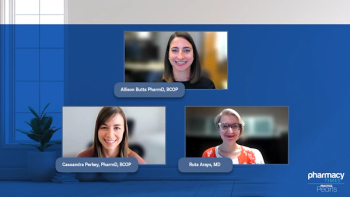
In clinical practice, the approach to G-CSF use with sacituzumab govitecan (SG) is typically individualized based on patient-specific risk factors and prior tolerance.

This section compares the adverse-event patterns of SG plus pembrolizumab versus chemotherapy plus pembrolizumab, emphasizing differences in hematologic and non-hematologic toxicities that inform clinical monitoring.

Unit-based pharmacists discuss the key contributions they make to the care team.

A panel of pharmacists discuss the innerworkings of unit-based pharmacy.

Shivang Joshi, MD, MPH, RPh, FAHS, discusses how Symbravo’s multimechanistic fixed-dose design may address gaps in acute migraine therapy for patients who do not respond to single-agent treatments.
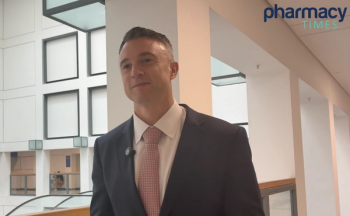
Sam Klempner, MD, discusses early findings for the bispecific T-cell engager ASP2138, including monotherapy response, combination activity, and safety enhancements through subcutaneous dosing.

Panelists discuss how coordinated multidisciplinary care improves adherence to oral targeted therapy.

Panelists discuss practical strategies to overcome barriers to initiating and maintaining CDK4/6 inhibitor therapy.

This segment explains how ASCENT-04 assessed whether moving sacituzumab govitecan into the first-line setting with immunotherapy could improve outcomes for a population with historically limited options.

This segment summarizes the challenges of metastatic TNBC and highlights how current treatment decisions rely on biomarkers and evolving molecular profiling to guide a personalized therapeutic approach.
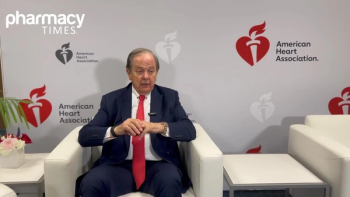
Discover how triple combination therapy for hypertension enhances cardiovascular health, as endorsed by the AHA and supported by pharmacists.
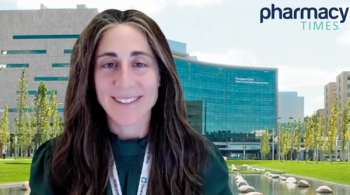
Diana Isaacs, PharmD, discusses evolving perceptions of obesity, the expanding role of pharmacotherapy, and how pharmacists can drive access, counseling, and long-term metabolic health.

Olezarsen effectively lowers triglycerides and enhances cardiovascular health, especially when combined with fibrates, benefiting pharmacists and patients alike.

Emergency medicine pharmacists discuss how they used a gamified, PowerPoint-based virtual escape room to improve disaster preparedness training, strengthen critical thinking, and highlight the essential role of pharmacists in emergency management.
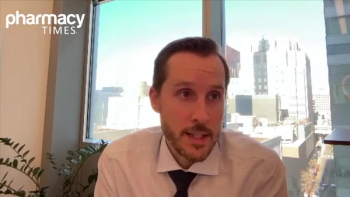
New triglyceride-lowering therapy Olezarsen significantly reduces severe hypertriglyceridemia and acute pancreatitis risk, offering hope for patients.

Panelists discuss broader clinical issues such as resistance, treatment duration, and quality of life in patients receiving CDK4/6 inhibitors.

Panelists discuss how to manage adverse events associated with CDK4/6 inhibitors and ensure smooth care transitions across health care settings.
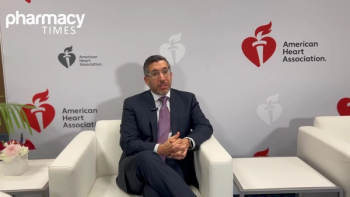
An expert highlights the need for early detection of aortic stenosis symptoms in elderly patients, urging pharmacists and clinicians to monitor subtle changes.
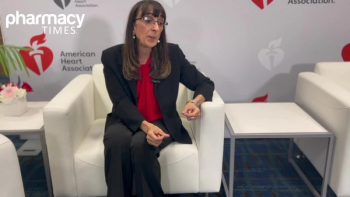
Biykem Bozkurt, MD, PhD, FACC, highlights the need for reliable activity monitoring in heart failure care, addressing challenges of digital wearables in clinical practice.
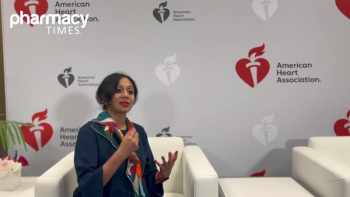
Pharmacists play a crucial role in holistic healthcare, enhancing patient care through education and collaboration with allied health professionals.
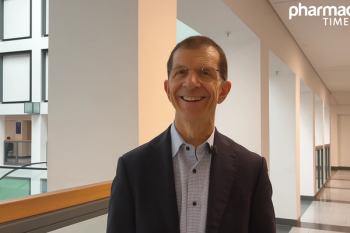
Danny Rischin, MD, reviews findings from the C-POST trial.
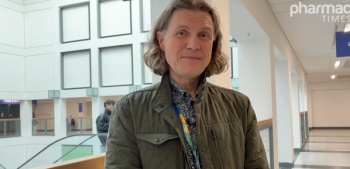
Thor Halfdanarson, MD, outlines real-world challenges in radiopharmaceutical production and delivery and highlights key questions for upcoming trials, including alpha vs beta emitters and long-term toxicity.
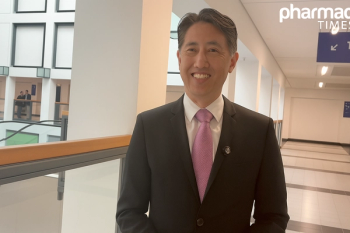
Scott Tagawa, MD, professor of medicine and urology at Weill Cornell Medicine, discusses safety and tolerability findings observed to date, renal and hematologic considerations, and the role of pharmacists.
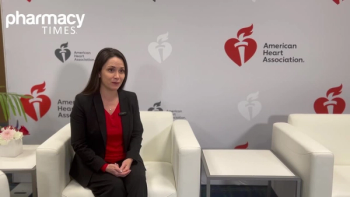
Pharmacists enhance LDL cholesterol management with tailored solutions like enlicitide, improving patient adherence and outcomes in cardiovascular care.

Panelists discuss the importance of clinical trial end points, survival outcomes, and guideline recommendations in guiding CDK4/6 inhibitor use.

Panelists discuss sequencing strategies for CDK4/6 inhibitors and the clinical factors influencing order of therapy in metastatic breast cancer.
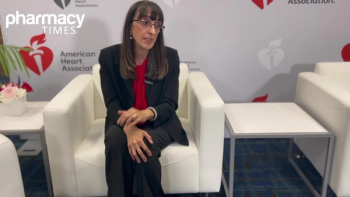
Discover how objective activity monitoring with accelerometers transforms cardiovascular risk assessment and treatment evaluation, enhancing patient care for pharmacists.
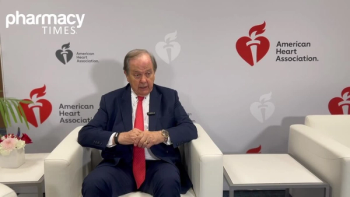
Expert highlights the benefits of early combination therapy in hypertension management, emphasizing improved blood pressure control and reduced side effects.

New research highlights the benefits of combining lutetium PSMA 617 with standard treatments, showing improved outcomes for prostate cancer patients.